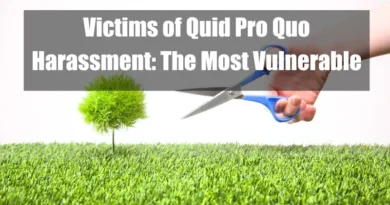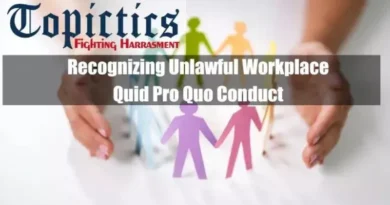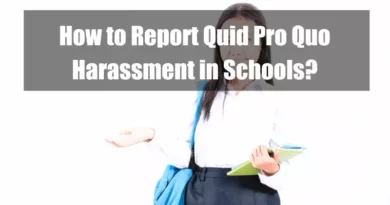When Is Political Quid Pro Quo Illegal?
In politics, a quid pro quo becomes illegal when it involves bribery, where something of value is exchanged to influence an official act. Under U.S. law, specifically 18 U.S.C. § 201, this entails offering or receiving anything of value with the intent to influence a public official’s actions. For example, in the 2016 case of former Virginia Governor Bob McDonnell, he was accused of accepting gifts in return for promoting a businessman’s product, leading to legal scrutiny over whether such actions constituted “official acts” under bribery laws. Similarly, in 2024, the U.S. Supreme Court ruled in Snyder v. United States that federal law criminalizes bribes but not gratuities, highlighting the legal distinction between payments intended to influence future actions versus rewards for past actions. Therefore, a quid pro quo in politics is illegal when it involves a clear exchange intended to influence an official’s duties, constituting bribery.
Takeaways
| Key Points |
|---|
| Political quid pro quo becomes illegal when a public official engages in an exchange where a benefit is offered or received with corrupt intent to influence or be influenced in an official act, violating federal statutes like 18 U.S.C. § 201 (bribery), 18 U.S.C. § 666 (bribery involving federal funds), and the Hobbs Act (extortion under color of official right). |
| These laws target not only direct bribery but also nuanced forms of corruption such as illegal gratuities—rewards for past official acts—differentiated from bribery by the absence of intent to influence future actions, as clarified in cases like Snyder v. United States and Sun-Diamond. |
| Landmark rulings, including McDonnell v. United States and McCormick v. United States, further define the boundaries of what constitutes an “official act” and the necessity of explicit quid pro quo agreements, particularly in the context of campaign contributions or political favors. |
| Illegal scenarios may involve campaign donations tied to specific actions, personal gifts linked to policy decisions, or post-office employment agreements arranged in exchange for favorable treatment, all of which require evidence of intent and a corrupt arrangement. |
| Ultimately, distinguishing between lawful political conduct and illegal quid pro quo hinges on the presence of a clear or implied agreement, the nature of the benefit, and whether the exchange compromises the public trust. |
Definition of Quid Pro Quo in Politics
“Quid pro quo,” a Latin term meaning “something for something,” refers to an exchange where one party provides a benefit to another with the expectation of receiving something in return. In the political arena, this concept manifests when a public official offers favorable treatment, decisions, or influence in exchange for personal gain, which could be monetary, material, or intangible benefits. While not all instances of quid pro quo are illegal, those that involve corruption, bribery, or undermining public trust breach ethical standards and, in many cases, violate legal statutes.
Legal Framework Governing Quid Pro Quo in U.S. Politics

The United States has established a comprehensive legal framework to address and prevent corrupt quid pro quo political arrangements. Several federal statutes explicitly prohibit such conduct, aiming to uphold the integrity of public office and ensure that governmental decisions serve the public interest rather than personal agendas.
Overview of Relevant Federal Laws
18 U.S.C. § 201: Federal Bribery Statute
This statute criminalizes the act of bribery involving public officials and witnesses. Specifically, it prohibits:
- Offering or giving anything of value to a public official with the intent to influence any official act.
- Public officials demanding or accepting anything of value in return for being influenced in the performance of any official act.
An “official act” is defined as any decision or action on matters pending before a public official. Violations of this statute can lead to severe penalties, including fines and imprisonment for up to 15 years.
18 U.S.C. § 666: Theft or Bribery Concerning Programs Receiving Federal Funds
This provision targets theft or bribery involving organizations that receive significant federal funding. It applies to:
- Agents of organizations, state, local, or Indian tribal governments that receive federal assistance exceeding $10,000 annually.
- Soliciting or accepting anything of value with the intent to be influenced or rewarded in connection with any business or transaction of such organizations involving $5,000 or more.
The statute aims to protect the integrity of federal funds and ensure they are used appropriately.
The Hobbs Act: Extortion and Public Corruption
Enacted in 1946 and codified at 18 U.S.C. § 1951, the Hobbs Act prohibits actual or attempted robbery or extortion affecting interstate or foreign commerce. In the context of public officials, “extortion” under the Hobbs Act includes:
- Obtaining property from another, with their consent, under the color of official right.
This means that a public official commits extortion when they take a payment not due to them in exchange for performing or refraining from an official act. The Hobbs Act is a critical tool in prosecuting public corruption cases.
Distinction Between Bribery and Gratuities
Understanding the difference between bribery and illegal gratuities is essential in the realm of public corruption law:
- Bribery involves a quid pro quo arrangement where something of value is exchanged with the intent to influence a public official’s present or future official act. It requires a corrupt agreement between the giver and the receiver.
- Illegal Gratuities, on the other hand, involve giving or receiving something of value for or because of an official act that has already been taken. Unlike bribery, illegal gratuities do not require proof of intent to influence the official act; instead, they focus on rewards for actions already performed.
The key distinction lies in intent and timing: bribery requires a corrupt intent to influence future actions, while illegal gratuities pertain to rewards for past actions without the necessity of proving intent to influence. Both are serious offenses, but bribery is generally considered more egregious due to its proactive corrupt intent.
Recent legal interpretations have further clarified these distinctions. For instance, the U.S. Supreme Court’s decision in Snyder v. United States emphasized that federal law criminalizes bribes but not gratuities, highlighting the legal differentiation between payments intended to influence future actions versus rewards for past actions.
The U.S. legal framework meticulously delineates and prohibits corrupt quid pro quo political arrangements through statutes like 18 U.S.C. § 201, 18 U.S.C. § 666, and the Hobbs Act. Understanding the nuances between bribery and illegal gratuities is crucial for public officials and citizens alike to ensure the integrity and trustworthiness of public institutions.
Historical Context and Notable U.S. Cases

Several landmark court cases have shaped the legal interpretation of quid pro quo in U.S. politics. These cases have clarified the boundaries between lawful political conduct and illegal corruption, particularly concerning what constitutes an “official act” and the distinctions between bribery and gratuities.
McDonnell v. United States: Defining “Official Acts”
In 2016, the U.S. Supreme Court addressed the case of former Virginia Governor Robert F. McDonnell, who was convicted of accepting over $175,000 in loans, gifts, and other benefits from businessman Jonnie Williams. In return, McDonnell arranged meetings and hosted events to promote Williams’ dietary supplement. The central legal question was whether these actions constituted “official acts” under federal bribery statutes.
The Supreme Court unanimously vacated McDonnell’s conviction, ruling that merely setting up meetings, hosting events, or making phone calls do not qualify as “official acts.” The Court defined an “official act” as a decision or action on a “question, matter, cause, suit, proceeding, or controversy” that involves a formal exercise of governmental power. This decision narrowed the scope of activities that could be prosecuted under federal bribery laws, emphasizing the need for a direct link between the benefit received and a formal governmental action.
Snyder v. United States: Clarifying the Scope of Bribery and Gratuities
In 2024, the Supreme Court further refined the legal boundaries between bribery and gratuities in the case of Snyder v. United States. The case involved a local official who accepted gifts after performing official acts, raising the question of whether such post hoc gifts constituted illegal gratuities under 18 U.S.C. § 666.
The Court ruled that § 666 does not criminalize gratuities given after an official act as a token of appreciation, distinguishing them from bribes involving a quid pro quo arrangement intended to influence an official act. The decision underscored that bribery and gratuities are separate offenses with different elements and penalties, highlighting the necessity of proving a corrupt agreement for a bribery conviction.
Other Significant Legal Precedents
Beyond these cases, other legal precedents have contributed to the understanding of quid pro quo in U.S. politics:
- McCormick v. United States (1991): The Supreme Court held that for a conviction of extortion under the Hobbs Act in the context of campaign contributions, there must be proof of an explicit quid pro quo—an express promise or undertaking by the official to perform or not perform an official act in exchange for contributions.
- United States v. Sun-Diamond Growers of California (1999): The Court clarified that for a gratuities conviction under 18 U.S.C. § 201(c), the government must prove a link between the thing of value given and a specific official act, reinforcing the distinction between lawful gifts and unlawful gratuities.
These cases collectively delineate the legal contours of quid pro quo arrangements, emphasizing the importance of explicit agreements and the nature of the official actions involved.
Identifying Illegal Quid Pro Quo in Political Activities
Determining the illegality of quid pro quo arrangements in politics involves assessing the nature of the agreement, the intent of the parties, and the evidence available.
Criteria for Determining Illegality
- Explicit vs. Implicit Agreements: An explicit agreement involves a clear, direct exchange where a public official agrees to perform a specific official act in return for something of value. Implicit agreements are more nuanced, involving an understanding inferred from the circumstances. While explicit agreements are more straightforward to prosecute, implicit agreements require demonstrating a pattern of conduct that implies a corrupt arrangement.
- Role of Intent and Evidence: Proving intent is crucial in establishing a quid pro quo. The prosecution must show that the official acted with corrupt intent to be influenced in their official duties. Evidence can include direct communications, witness testimony, and patterns of behavior that indicate a reciprocal relationship between the benefit given and the official act performed.
Common Scenarios and Examples
Illegal quid pro quo arrangements can manifest in various forms:
- Campaign Contributions: A donor contributes to a politician’s campaign with the expectation that the politician will support legislation favorable to the donor’s interests. If an explicit agreement exists linking the contribution to a specific legislative action, this constitutes bribery.
- Gifts and Personal Benefits: An official receives lavish gifts or personal benefits from an individual seeking favorable treatment, such as awarding contracts or influencing regulatory decisions. Without a legitimate, non-corrupt explanation, such exchanges can be deemed illegal.
- Post-Term Employment: An official secures a high-paying job in a company shortly after leaving public office, following decisions that benefited that company during their tenure. If a prior agreement or understanding existed regarding this employment in exchange for favorable decisions, it constitutes a quid pro quo.
Understanding these scenarios helps recognize and prevent corrupt practices that undermine public trust and the integrity of governmental institutions.
Consequences of Engaging in Illegal Quid Pro Quo

Engaging in illegal quid pro quo arrangements can lead to severe legal, political, and reputational repercussions for public officials.
Legal Penalties and Sanctions
Under federal statutes such as 18 U.S.C. § 201, public officials convicted of bribery face significant penalties, including fines and imprisonment. For instance, bribery convictions can result in up to 15 years of imprisonment and disqualification from holding any office of honor, trust, or profit under the United States.
Political and Reputational Impacts
Beyond legal consequences, involvement in quid pro quo corruption severely damages an official’s political career and public image. Such scandals erode public trust, leading to diminished credibility and potential removal from office. The stigma associated with corruption allegations can also hinder future career prospects both within and outside of politics.
Preventative Measures and Ethical Considerations

Public officials should adhere to stringent ethical standards and implement robust preventative measures to prevent illegal quid pro quo arrangements.
Best Practices for Politicians and Public Officials
- Adherence to Ethics Laws: Familiarize and comply with all relevant public service ethics laws and regulations.
- Avoid Conflicts of Interest: Refrain from situations where personal interests could conflict with official duties.
- Document Interactions: Maintain transparent meetings, gifts, and communications records to provide accountability.
Role of Transparency and Accountability
Transparency serves as a deterrent to corruption by making governmental processes open to public scrutiny. Implementing measures such as public disclosure of financial interests, open meetings, and accessible records enhances accountability and reduces opportunities for corrupt practices.
Ethical Guidelines and Standards
Public officials are expected to uphold high ethical standards, acting in the public interest rather than for personal gain. Adhering to codes of conduct, participating in ethics training, and fostering a culture of integrity within public service are essential components in preventing corruption.
Conclusion
Illegal quid pro quo arrangements undermine the integrity of public institutions and erode public trust. The severe legal, political, and reputational consequences serve as a deterrent to such corrupt practices. By adhering to ethical guidelines, promoting transparency, and implementing preventative measures, public officials can maintain the trust placed in them by the public and ensure the proper functioning of democratic institutions.









